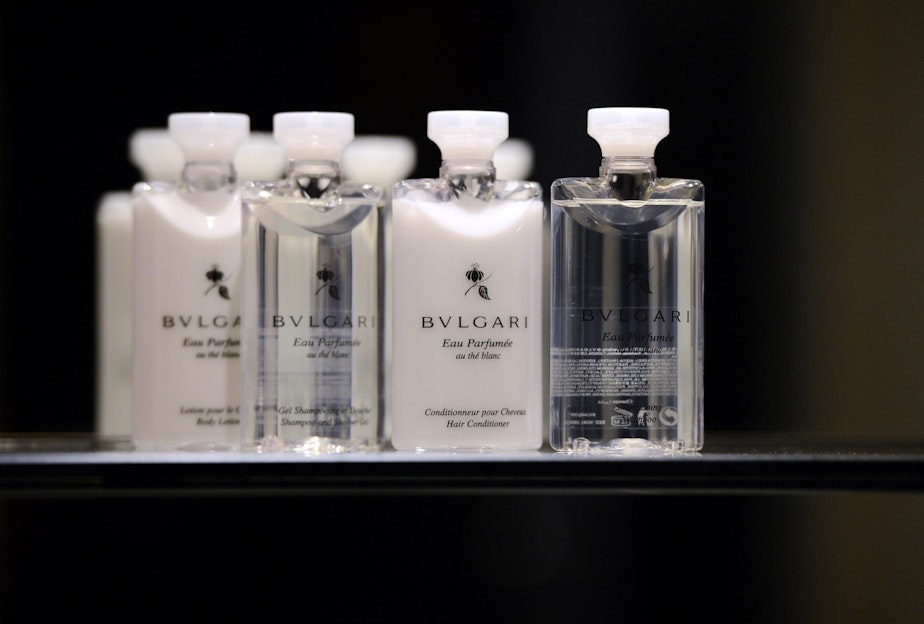California Bill Moves To Ban Mini Hotel Toiletry Bottles

Do you use those tiny toiletry bottles in hotels? Maybe you take them home and stockpile them.
But have you thought about how much plastic that is? Legislators in California have. In April, members of the state assembly voted to replace small plastic bottles with dispensers or bottles larger than 12 ounces.
If approved, as expected, by the governor, the bill would go into effect in 2023 — banning little shampoo, conditioner and body wash bottles in hotels, bed and breakfasts, resorts and vacation rentals.
The bill is modeled after an ordinance adopted by the city of Santa Cruz last year, which made it the first jurisdiction in the state to ban small plastic bottles. Marriott International also announced last year that it would place dispensers in some 1,500 hotels in North America, The New York Times reports. The move by the hotel chain is expected to eliminate 10.4 million plastic bottles, which adds up to 113,000 pounds of plastic annually.
Industry leaders in California are behind the bill as well. Lynn Mohrfeld, president and CEO of the California Hotel & Lodging Association, says his group is “fully supportive” of the initiative.
While Morhfeld says he’s personally over mini plastic bottles, he admits that some have strong feelings about them.
“When I tell my friends about this, they’re like, ‘Well, wait a minute. I like the small bottles,’ ” Mohrfeld tells Here & Now’s Robin Young. “So there’s definitely a whole lot of different opinions out there, but I think it’s the right way to go because of sustainability.”
Having a dispenser in the room means guests can use as much shampoo, conditioner and body wash as they want, Morhfeld adds.
“So the dispenser, you’ve got follically challenged people like myself who don’t use a lot of shampoo, and then you’ve got some folks with some long hair that use a lot of shampoo and conditioner,” he says. “We have methods now to keep it healthy and sanitary.”
The association has asked for an extension on the deadline for implementing the dispensers, Mohrfeld says.
“The timing on this was a little bit too steep for us. We’ve got 600,000 rooms in California,” he says. “There is the cost of dispenser and you have to install the dispenser, and it’s surprisingly complicated when it comes to operations and housekeeping carts and everything else.”
Mohrfeld says originally, he didn’t think the legislation was necessary because the industry was already going in that direction. But now he’s glad everyone in the business can reach a common goal.
“A lot of us in the industry said, ‘Hey, we don’t really need a bill,’ and then we’re looking at it and saying, ‘OK, well, let’s all get there together,’ ” he says. “And as long as it’s fair and consistent — we’ve got this all the way across the state — we’re OK with the legislation. Just give us enough time to implement it.”
This article was originally published on WBUR.org. [Copyright 2019 NPR]
